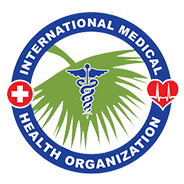
Repair Center for the Differently Abled
Northern Province, Sri Lanka
The Need
Mullaitheevu District houses a significant population of people who are differently abled, but the district in 2017 lacked a formal center for conducting repairs. Thus, many individuals were forced to travel to Jaffna and Vavuniya at a significant personal cost to complete repairs of three-wheelers, wheelchairs, and motorcycles or bicycles.
Despite having the skills and motivation to conduct repairs, they were hindered by the lack of a formal repair facility. The distance from Mullaitivu to Jaffna is 113.7 km while the distance from Mullaitivu to Vavuniya is 79.4 km, a ridiculous distance to fix items that are vital necessary for day to day living. The difficulties of the trip were only exacerbated by the disabilities and size of the items that need to be repaired.
The Solution
This project proposed the setup of a repair facility in Mullaitivu District to facilitate local repairs, and to also uplift members of the local differently abled community. IMHO is a strong believer of sustainable development, therefore creating a facility where members of the community can help themselves provides the ultimate solution.
Prosthetics greatly benefit those with missing limbs, allowing them greater mobility and comfort as well as some semblance of normality after such a vital loss. Tool sets and gas welding machines are common tools that can be reused to benefit multiple members of the community. A typical gas welding machine, which uses oxygen to weld metals together can weigh around 500 pounds, and can be used on more than just various forms of transport.
Resources
IMHO provided support to the repair center for the Differently Abled by providing the appropriate funds to facilitate the program. The request was made for a total of $2,750 for items including, prosthetics, tool sets, a gas welding machine, canes and miscellaneous supplies. IMHO utilized our annual gala as a prime opportunity to reach out to the community, we offered options such as monthly donations, one time donations, United Way employer match campaigns, and the opportunity to sponsor our events, all in the hopes of garnering support. We at IMHO were also delighted to partner with the youth of the Richmond Hill Rotary Club, the club generously held a silent auction during their chartering ceremony, raising enough to help IMHO fund the repair center.
Impact
Direct Impact
Benefits the disabled community of Mullaitivu, and the members of the community who depend on transportation for their livelihood
The people of Mullaitivu district and the visitors to Pudukudiyiruppu’s “Olirum Vaazhvu” organization were and are the direct beneficiaries of this project. Many people were provided with prosthetics allowing them to return to life before their debilitating accidents. The prosthetics also benefited the community by minimizing the burden on the caretakers of the differently abled.
Bicycles, motorcycles and Three-wheelers are very common forms of transportation in Northern province, where Mullaitivu is located. Creating a repair center allowed many people the benefit of accessible repairs when necessary, especially as modes of transportation are so vital. The ultimate impact on mobility brings about a sense of security to the population of Pudukuduirippu for both those who presently need it and for those who may require the specialties of the repair center in the future.
Indirect Impact
Benefits the greater community of Mullaitivu, anyone who uses transportation and the family members of the differently abled
The Repair Centre for the Differently Abled project correlates directly with the third and tenth sustainable development goal (SDG3 and SDG10) outlined by the United Nations. SDG3 refers to good health and well being for all ages. Disability does not discriminate, prosthetics are required for all ages, likewise bicycles, motorcycles, and three-wheelers are used by a multitude of ages.
Promoting methods of transportation, aids physical and economic well being while individualized tools, such as canes and prosthetics help singular members of the community. SDG10 promotes the reduction of inequality. The repair center allows access that the population of Mullaitivu was severely lacking, this project also addresses the need of the physically disabled. Prosthetics improve the use of remaining joints, provide stabler standing and sitting conditions and improve the overall quality of life, all factors that lead towards an easier and more equitable lifestyle.
Reversed land degradation from war and migration in recent years.
Increased agricultural opportunities and sustainable living for underserved communities in the area.
# of people directly benefited
# of people indirectly benefited




